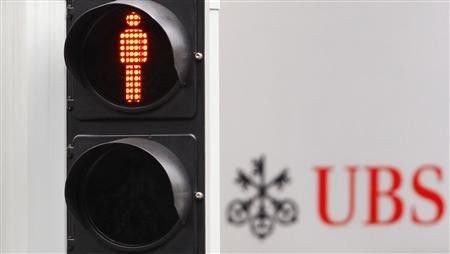Kweku Adoboli: Is UBS Doomed?
ANALYSIS

Swiss bank UBS AG was already in deep trouble prior to rogue trader Kweku Adoboli’s apparent confession that he allegedly lost the bank $2 billion through a series of unauthorized trades.
UBS reportedly lost £35 billion ($55 billion) during the global banking crisis of 2007-2008 – much of it due to the imploding subprime real estate market in the U.S. -- and had to be rescued by Swiss taxpayers. The bank was also allowed to transfer up to $60 billion of distressed assets to a fund supported by the Swiss central bank.
The bank also faced serious legal and tax issues in the U.S. and was forced to hand over the names of 300 clients and pay a $780 million fine.
Late last month, UBS warned it would cut 3,500 jobs around the world over the next two-and-a-half years to cut costs. Of that total, the bank said, about 45 percent of the redundancies will come from the troubled investment bank operations.
In July 2011, the bank said it was seeking ways to generate annual savings of 2 billion Swiss francs ($2.54 billion), following a huge 49 percent drop in quarterly profits.
Now this, a rogue trader in London who is accused of amassing huge losses.
Moody’s credit rating agency said it'll review UBS’ rating, citing the "ongoing weaknesses" in the bank's risk management.
"We have continued to express concerns with regards to the ability of management to develop a robust risk culture and effective control framework," said Moody’s.
Standard & Poor's indicated it may downgrade the bank's A+ rating.
Moreover, UBS warned, continued losses in the investment bank arena could lead to more restructuring and another round of job cuts to be unveiled in November. The company’s investment bank was already hobbled by falling revenues and tighter regulations.
The Adoboli affair may just have accelerated that program.
The $2 billion that UBS has already lost due to the rogue trader in London essentially cancels out the expected savings the bank hopes to generate from its job-cutting plan.
Teresa Nielsen, an analyst at the Swiss bank Vontobel, told the media: "We believe that yesterday's event [the arrest of the rogue trader] could have personnel consequences on senior management level, which in turn could lead to adjustments to UBS' business portfolio. The exit from non-core businesses inside the investment bank could be accelerated.”
Analysts at JP Morgan wrote: "We expect UBS will come under material pressure from shareholders and FINMA [Swiss financial regulatory body] to review its investment bank business ... the trading loss being the final straw, leading to material restructuring.”
S&P added: "The loss is a setback to UBS' efforts to rebuild its reputation and demonstrate strengthened risk management following its weak performance in 2007-2009. UBS is currently undertaking a strategic review of the size and shape of the investment bank division and we consider that the trading loss may influence the outcome of this process.”
BBC also reported that the Swiss government has been pressuring UBS to either shut down its investment banking unit, or separate that business from its retail banking operations.
Robert Peston, a business correspondent for BBC, commented: "Even separation would have profound ramifications, in that a separated investment bank would be deemed by creditors and investors as much riskier than the current integrated, universal-banking form of UBS.”
UBS also may risk losing many high net worth clients due to the trading irregularities – which would be about the last thing the bank now needs.
Indeed, among many other questions being raised by this rogue trading affair is why didn’t UBS’ own internal mechanisms detect Adoboli’s illegal trades themselves? A BBC reporter commented: "The disclosure that it was… Adoboli's decision to inform his colleagues of his actions that set alarm bells ringing at UBS, rather than its own monitoring system, will add to concerns that investment banks simply aren't capable of controlling the huge risks that their traders take."
In a similar vein, Chris Roebuck, visiting professor at the Cass Business School, told BBC: "Why did the systems not spot this before it got totally out of control? This is a key question the risk systems managers must answer - but he must have found a way round the systems to get this far into debt."
UBS shares have dropped almost 37 percent since late April – in line with many other banking stocks. However, aside from irate shareholders, UBS may be facing questions about its very survival.
© Copyright IBTimes 2024. All rights reserved.





















